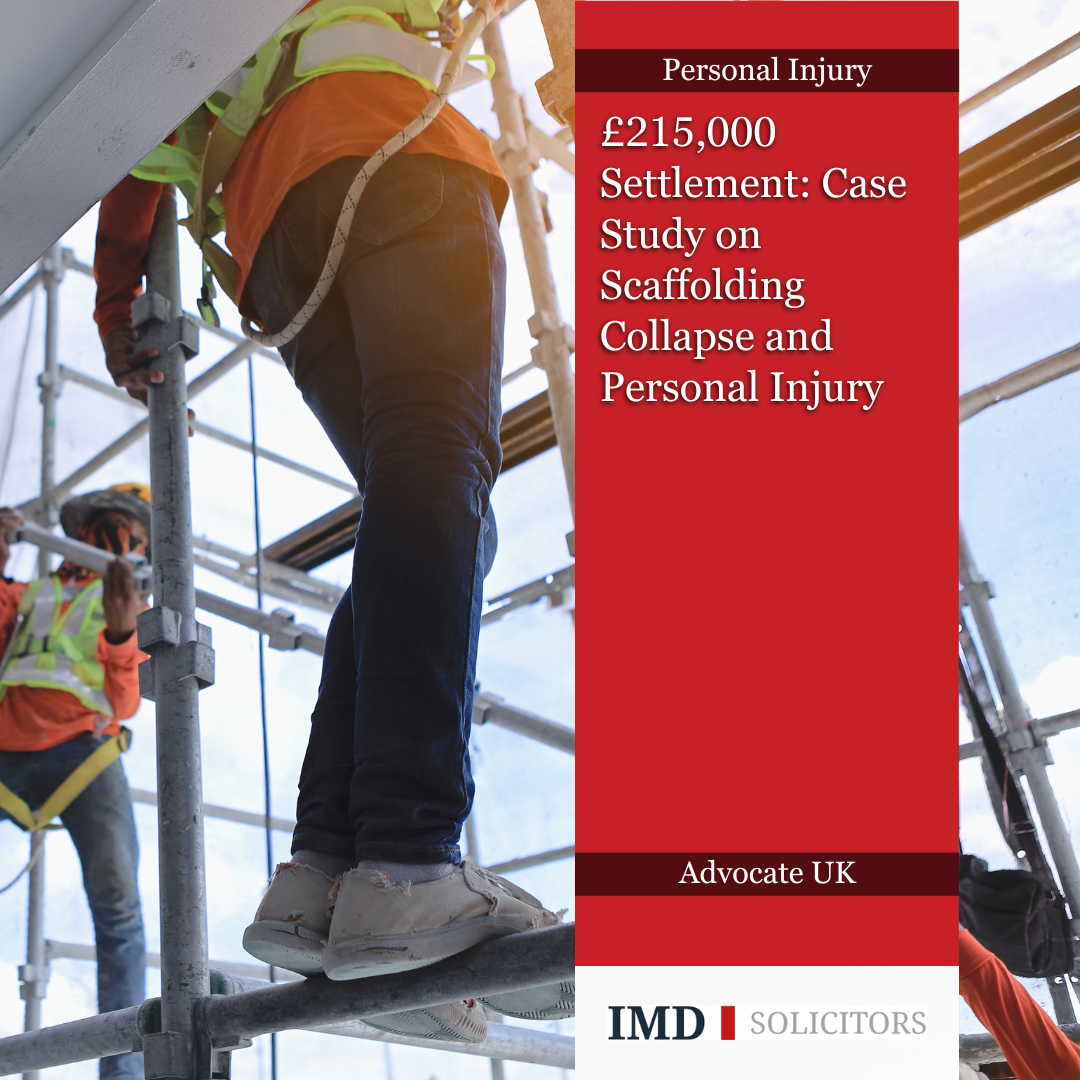
This case study examines a significant personal injury claim following an accident where scaffolding collapsed at a warehouse, leading to serious injuries for an employee tasked with dismantling an air conditioning unit. This analysis will go over the details of the incident, the legal challenges faced in proving who was at fault, how the damages were evaluated, and the strategies that led to the final settlement of £215,000.
The employee, accompanied by a colleague, was ordered by their manager to dismantle a substantial air conditioning unit mounted on a wall at their workplace. They were advised to use a scaffold for this task, not knowing it was inappropriate for such heavy-duty work and had been poorly installed by a third party. During the removal process, the instability of the scaffold led to its collapse. Tragically, as the scaffold fell, the air conditioning unit also came crashing down, landing directly on the employee’s leg. This accident caused a severe fracture to the leg and foot, necessitating extended hospital stays and multiple surgical procedures to insert metal supports. Despite these efforts, the injuries led to lasting mobility impairments for the employee.
Initially, the employer denied responsibility, claiming the injured employee was to blame for the scaffold’s instability. However, through diligent investigation, including interviews with witnesses and colleagues present during the incident, it was proven that the scaffold had been installed by another company and that the employer had failed to check its safety. This evidence was needed in establishing that the liability lay with the employer and the third-party installer.
The severity and enduring consequences of the employee’s injuries were heavily disputed by the employer, who challenged the long-term impact and the degree of disability claimed. In response, our team collected a wide range of medical evidence, securing detailed assessments from multiple orthopaedic specialists. These experts provided comprehensive reports confirming the permanent damage caused by the accident. This crucial medical evidence highlights the severity of the injuries, including complex fractures and the necessity for ongoing medical interventions, supporting our claim for a higher compensation amount due to the significant and lasting disability faced by our client.
UK law encourages parties to seek a settlement before proceeding to trial. After initial negotiations failed, we arranged a joint settlement meeting where intensive negotiations took place. Despite considerable differences in the valuation of damages, our firm’s persistence and prepared preparation led to a significant breakthrough.
A joint settlement meeting (JSM) is a facilitated negotiation process where both parties, along with their legal representatives, meet to discuss and hopefully agree on a settlement. The meeting typically takes place in a neutral location with each party in separate rooms. During the JSM, a mediator or an independent party may help shuttle between the rooms to exchange offers, counteroffers, and concessions.
In this case, the JSM was crucial due to the ongoing disputes over the compensation amount. The day-long meeting involved detailed discussions about the nature of the injuries, the impact on the client’s life, loss of earnings, and future medical needs. The negotiation was intense, with both sides starting far apart. The defendant’s initial offers were significantly lower than our valuation, reflecting their underestimation of the injury’s severity and long-term effects.
As the negotiations stretched into the evening, our legal team presented compelling arguments and evidence, emphasising the lifelong impact of the injuries on our client. By carefully arguing each point and countering low estimates of damages, we gradually moved the discussions towards a more reasonable compensation range.
Eventually, as the day was ending and with the prospect of having to return for further costly negotiations, the defendant’s team agreed to re-evaluate their position. This reassessment led to a breakthrough, where they made a significantly improved offer that more accurately reflected the true costs and impacts of the injuries sustained. After careful consideration and consultation with our client, the offer of £215,000 was accepted.
This case emphasizes how important it is for employers to be careful about workplace safety and the strong legal methods needed to properly represent and support clients. The successful settlement of £215,000 not only provided the client with compensation for his injuries but also emphasised the need for thorough preparation and strong negotiation skills in personal injury claims.
This article is for general information only and does not constitute legal or professional advice. Please note that the law may have changed since this article was published.